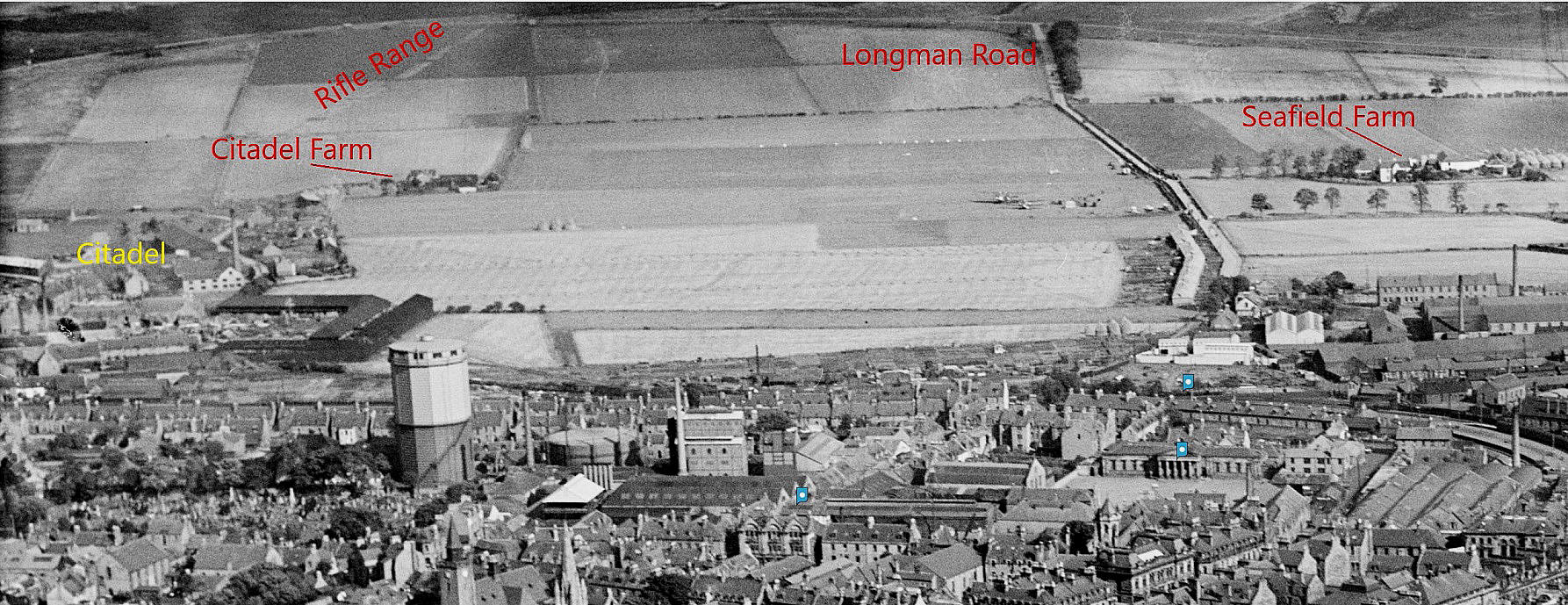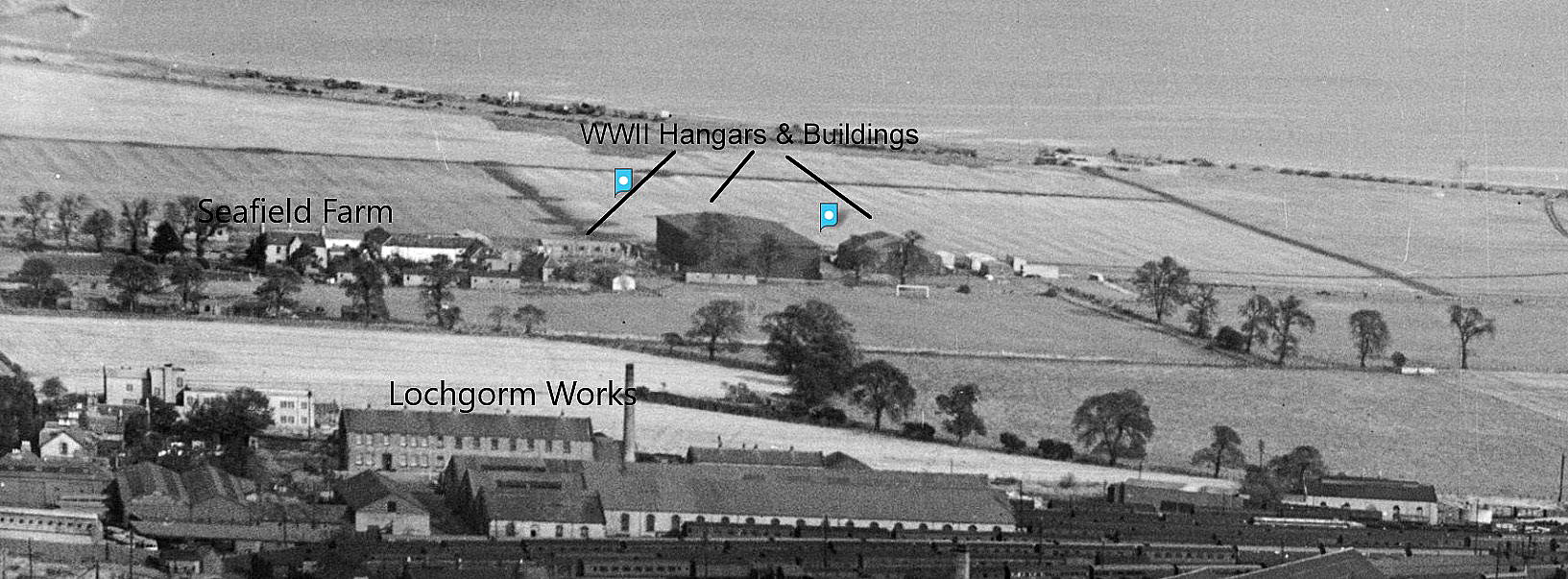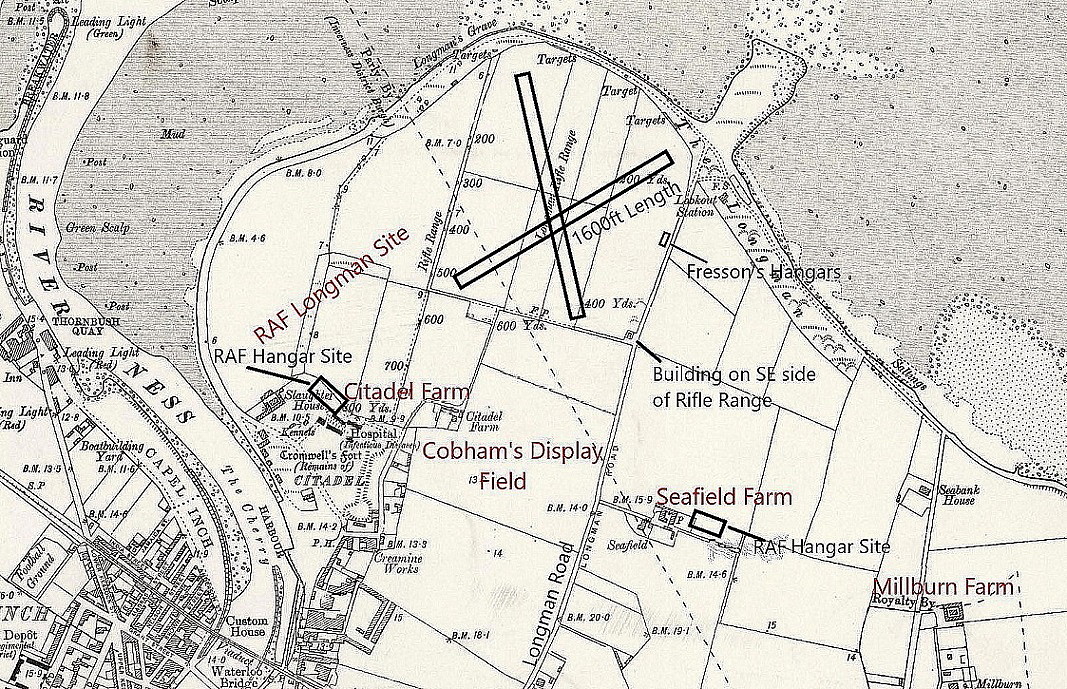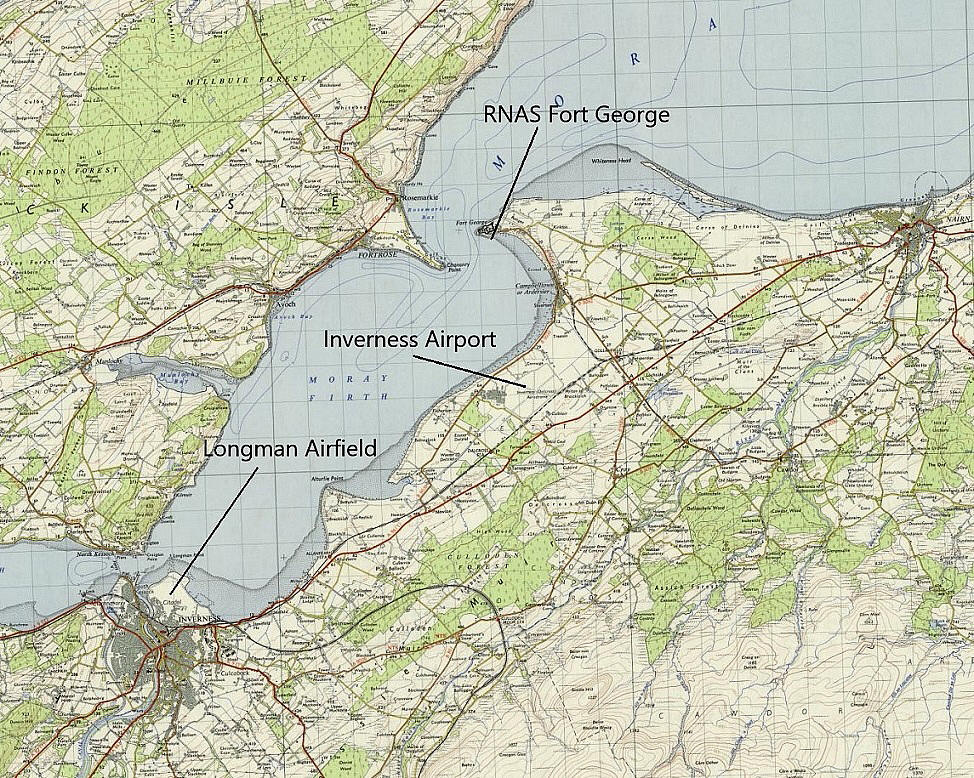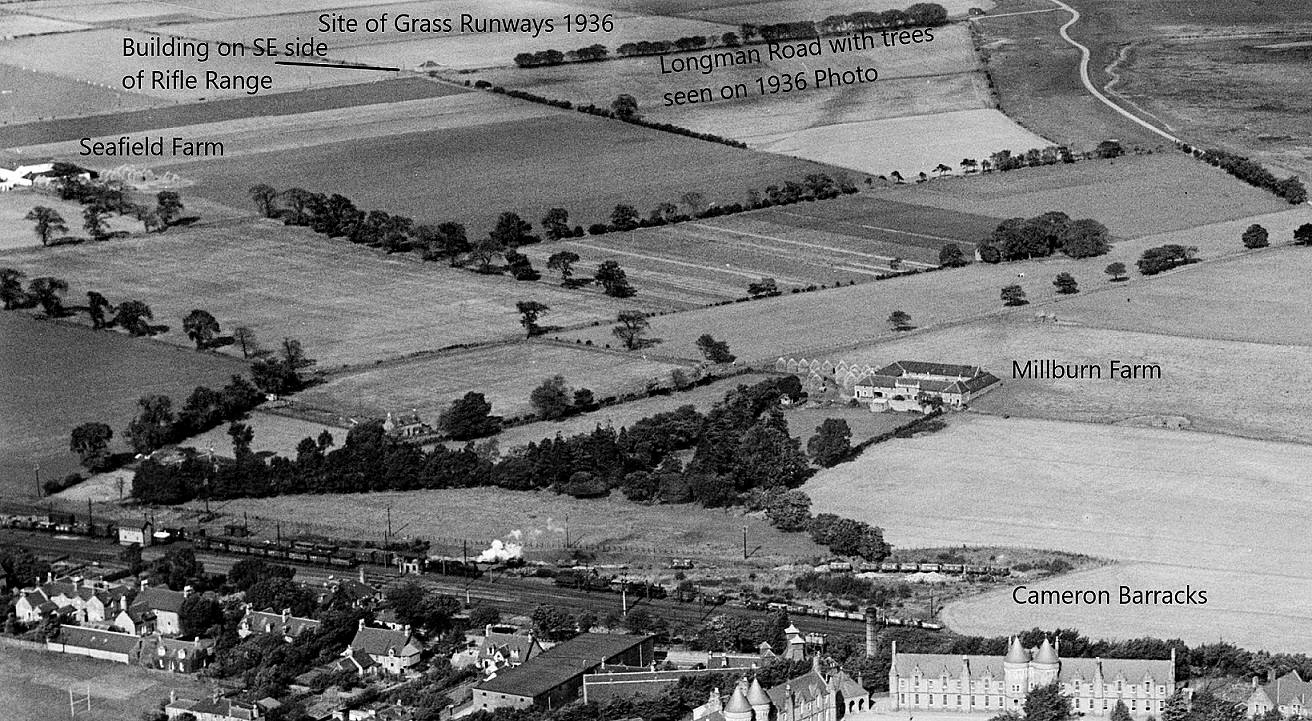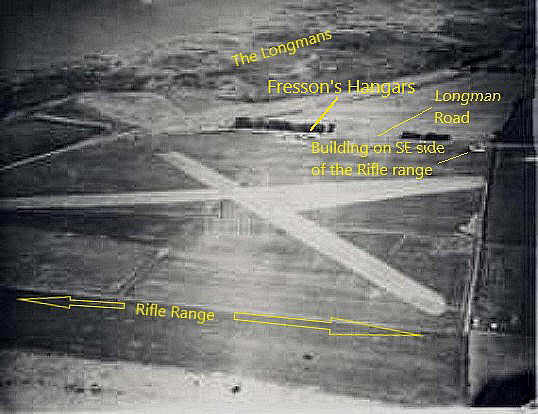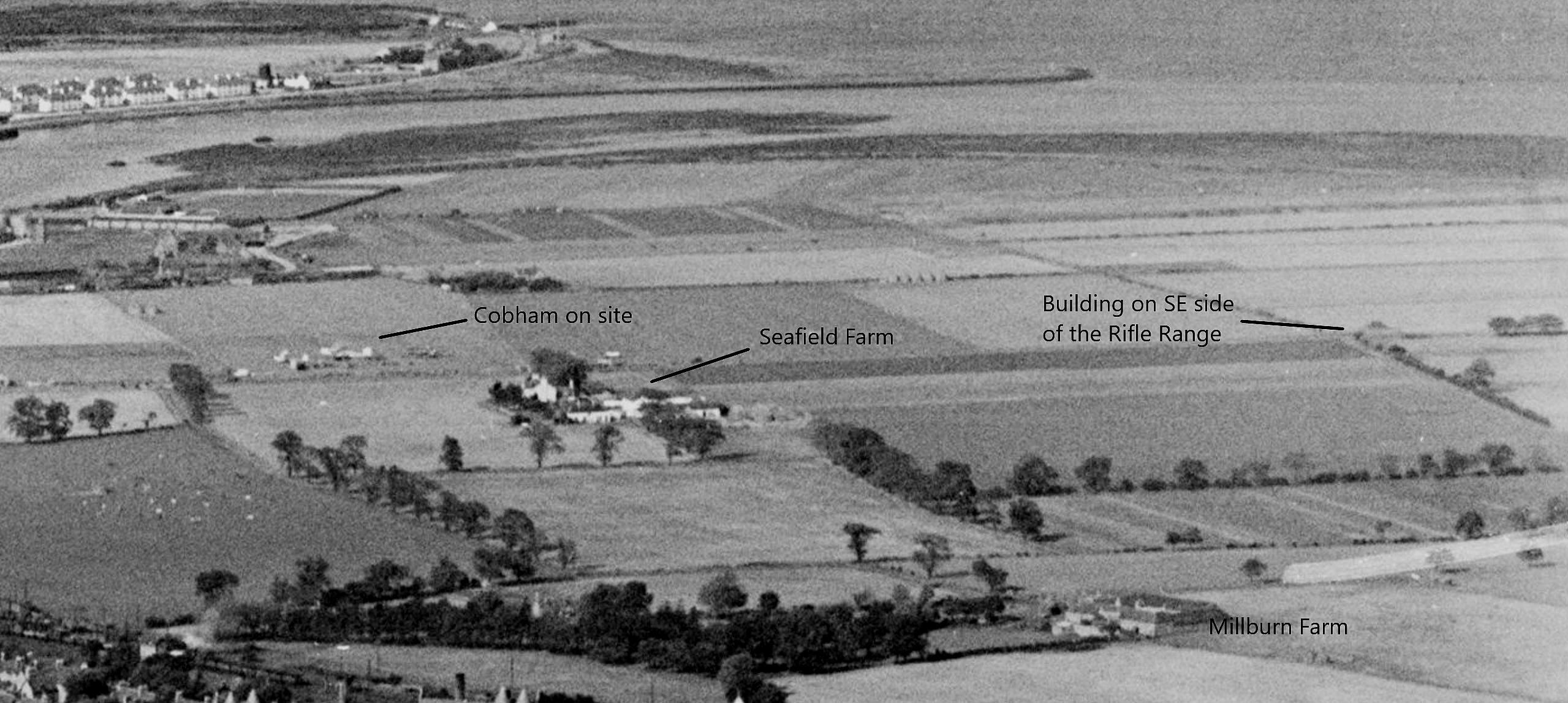Seafield
Note: This map gives the position of Seafield in Inverness, quite close to the town centre.
SEAFIELD: Civil aerodrome, initially temporary
Note: Please see 'Comments' below, and many thanks to Gary Brindle for clearing this up.
However, when looking at this region again in the light of additional information, Mike Holder and myself decided it needed a review. For example I had originally noted: "One has to wonder why the Cobham team elected to use the term SEAFIELD for this venue?" The answer would appear to be that LONGMAN AERODROME was not established until roughly a year later when the SEAFIELD airfield was extended across Longman Road. This was where E.E. (Ted) Fresson first established his base for Highland Airways in April 1933. (See the LONGMAN listing for more info)
However, it would appear very likely that when a director of the North British Aviation Co. based at HOOTON PARK in CHESHIRE, and flew from Inverness to the Orkney Islands on the 22nd August 1931, he probably used this site. Probably again when he flew across in February 1933. Without much if any doubt the arrival of the Sir Alan Cobham 1932 Tour for their display, set the scene for this to be an ideal site for a permanent aerodrome.
This aerodrome was later incorporated into the WW2 RAF LONGMAN airfield which was extended to the west to allow a roughly NE/SW runway. This aerodrome having a E/W runway.
Notes: These maps and pictures were kindly provided by Mr Michael T Holder
Operated by:
Alan Cobham’s 1932 National Aviation Day UK Display Tour
Location: Longman Road, Inverness
Period of operation: 22nd September 1932
NOTES: Is this the 1931 venue for Aviation Tours? And indeed the venue on the 14th May 1934 when the Cobham Tour displayed in/near Inverness?
The 1932 picture above is a rare treat. It shows the Cobham Tour in late September 1932 either setting up for the display or dismantling afterwards. One of their two Airspeed Ferry types, (G-ABSI or G-ABSJ), is clearly in evidence. But what is the much larger airliner nearby. It is almost certainly the Handley Page Clive G-ABYX , owned by Alan Cobham Aviation Ltd. The Handley Page W.10 G-EBMR hired from Imperial Airways, it appears, was withdrawn from the Tour in August.
Mike Holder, who probably should have been a world famous detective rather than slouching around acting in navigation roles in Vulcans, Comets and Nimrods, has unearthed this article in the Aberdeen Press and Journal published on Friday 23rd September 1932, from which I will quote a few excerpts:
AIR THRILLS OVER INVERNESS
_____________
Sir A. Cobham Party in Great Display
___________
HUNDREDS ENJOY A FLIGHT
____________
"Inverness had a wonderful display of aerobatics from Sir Alan Cobham and his aviators yesterday. It is expected to give a decided impetus to aviation in the north." "....Sir Alan expressed himself as being thoroughly convinced of the great future of Inverness as a centre for civil aviation in the north of Scotland. He regards Inverness as the ideal "pushing-off" place for Scandinavia, a country which, in his opinion, is rapidly developing aviation."
As so very often, Cobham, although an immense enthusiast who did so much to promote aviation in the UK, often made blunders, recommending that aerodromes should be set up in entirely unsuitable places. And how quaint to see that he, (or more probably the reporter), didn't realise that Scandinavia comprised three countries - Demark, Sweden and Norway of course. Also, given the types of limited range small commercial aircraft in those days, Inverness was far too distant to provide any worthwhile traffic to Scandinavia.
As far as I am aware, no commercial services to Scandinavia occurred, from here or even DYCE (Aberdeen), until after WW2.
BONUS PICTURES
Note: All three of these pictures were kindly provided by Mr Michael T Holder.
(In the third picture Cobham's aircraft are in a different position to the first picture in the first row.)
They show of course how the original SEAFIELD site became absorbed into LONGMAN aerodrome which was adopted by the RAF at the outbreak of WW2.
Gary Brindle
This comment was written on: 2016-11-09 16:43:20This would be the field used for Longman airfield being the only flat ground.
Reply from Dick Flute:
Hi Gary, Many thanks for this and all the other info. Regards Dick
We'd love to hear from you, so please scroll down to leave a comment!
Leave a comment ...
Copyright (c) UK Airfield Guide















